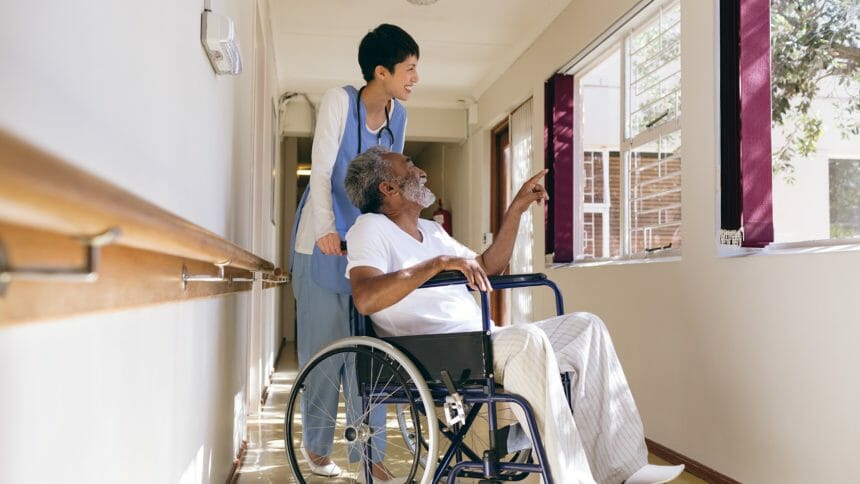
Amid the all-too-frequent headlines of “nursing home deaths,” federal and state deficits, increased competition from home health agencies and historic low occupancy levels while wage pressures continue, some may be wondering how the nursing home industry will emerge from the pandemic. Yet, despite the challenges of the last year, many investors continue to see opportunity in the skilled nursing sector, according to speakers Wednesday at a National Investment Center for Seniors Housing & Care “Leadership Huddle” webinar.
“When you’re looking to deploy capital, there’s always a risk, but this is an industry that is established and has been around for a while and will continue to be around because of the need,” said Ben Reisman, senior vice president of finance at TL Management. He added that many investors also take comfort in the fact that many skilled nursing operators are passionate about the work and the residents they serve, and want to see the sector survive.
“I don’t know how to change a bandage or teach somebody to walk again,” Reisman said. “We’re dependent on the people inside the building, and the people there have for the most part made a career choice to do this because they care, and they’re passionate about it.”
Although deals obviously have been a bit slow going amid the pandemic, as census begins to recover and lenders start to feel more comfortable again, that will change — especially if it involves the right operator, said Wendy Simpson, chairman and CEO of LTC Properties.
“I think the industry is more interested in the operator right now than the asset in some ways,” Simpson said. “We have some very good operators and we’d really like to have the opportunity to let them expand their portfolios, and we know that with the right operator, the right location and the right service level, it does work in skilled nursing. I’m looking for those types of opportunities to provide additional return to our shareholders.”
Reisman also abated the concern some skilled nursing investors may have related to the recent trend toward home health, noting that once visitation and group therapy are permitted again, patients will prefer congregate settings to the isolation of being at home.
“Especially if it was a patient’s first fall, there’s a lot of comfort in being in a building where there are always caregivers and other people around,” he said. Simpson agreed and added that if the skilled nursing industry can develop outcome studies comparing therapy in a facility gym to that being done at home, that will drive home the need for skilled nursing even further.
“In a vast majority of cases, I believe you’re going to get a better outcome in a nursing home rehab program than at home,” she said.
Both Simpson and Reisman agreed, however, that the sector still needs time to recover and that occupancy numbers aren’t likely to return to pre-pandemic numbers until the second half of 2022.
“I think it’s unrealistic to think that since the vaccine is out there now, that in three months or six months, census will be back up,” Reisman said. “Also, everyone is suffering right now, so if one hospital starts opening up for elective surgeries, every nursing home in that market is going to be chasing that referral. It’s going to be tough for a while.”
This article appeared in the McKnight’s Business Daily, a joint effort of McKnight’s Senior Living and McKnight’s Long-Term Care News.




